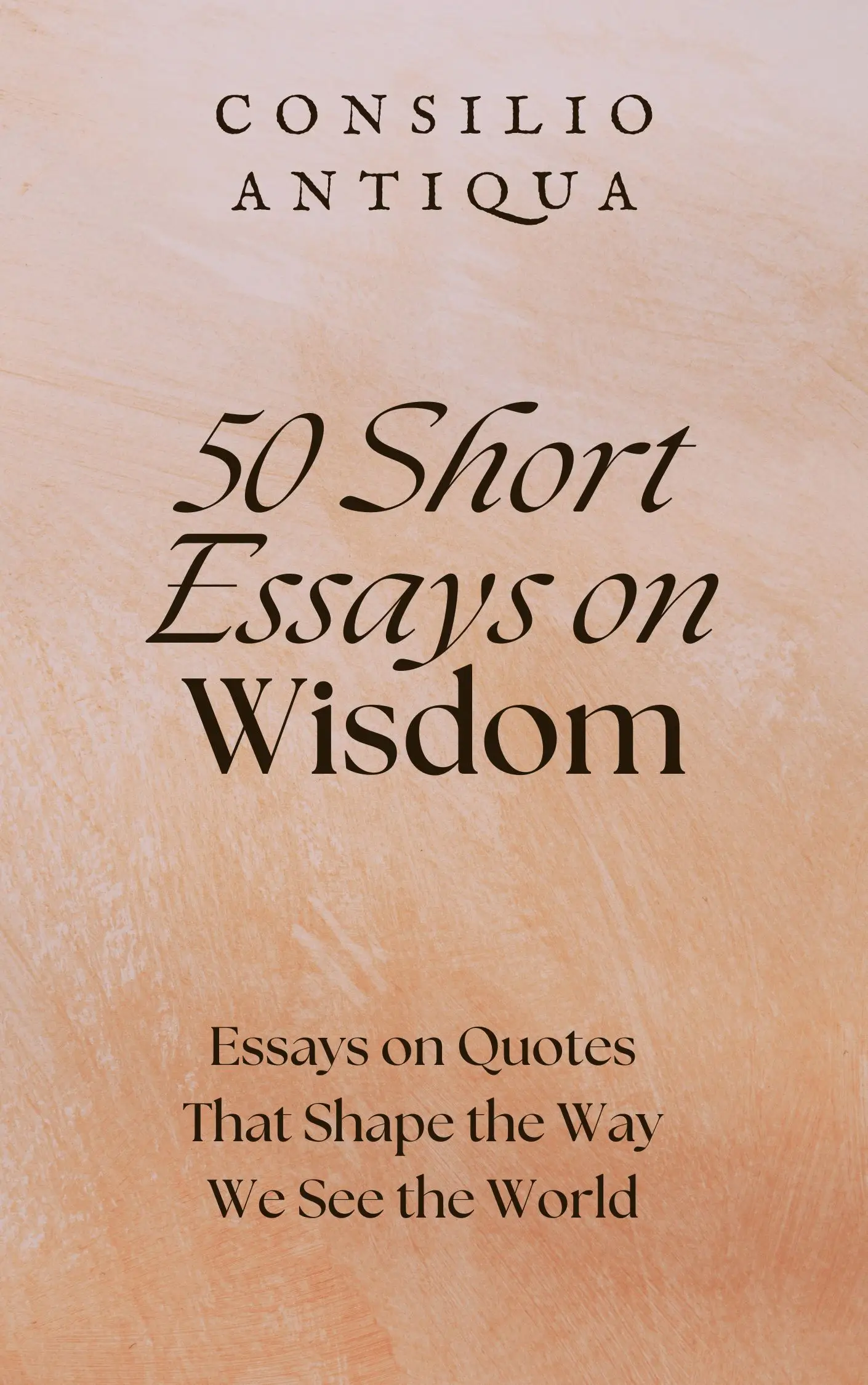
50 Short Essays on Wisdom | All Change
All Change
"Change is the only constant." - Heraclitus
Imagine a river, its waters a ceaseless flow, carving new paths through the earth, eroding stone, shaping the landscape with relentless, beautiful persistence. This image, a visual poem of constant flux, encapsulates the core of Heraclitus's profound assertion: "Change is the only constant." This seemingly simple statement, born from the heart of ancient Greece, speaks to a fundamental truth about the universe and our place within it, demanding both acceptance and proactive engagement. This essay will explore the enduring wisdom of Heraclitus's philosophy, tracing its historical roots and examining its relevance to the complexities of the modern world.
Heraclitus, a pre-Socratic philosopher from Ephesus, lived in the 6th century BCE, a time of immense social and political upheaval in the Greek world. His philosophy, expressed in fragmented sayings, reflects this turbulent era. He saw the universe as a dynamic entity, governed by a principle of constant change he termed logos, often interpreted as reason or underlying order. Unlike his contemporaries who sought unchanging, fundamental substances, Heraclitus emphasized the process of becoming, the continuous transformation inherent in all things. His influence resonated through centuries, shaping the thoughts of later philosophers like Plato and influencing the development of Stoicism, a philosophy that emphasizes acceptance of what we cannot control.
The core of Heraclitus's wisdom lies in understanding that change is not merely an external force but an intrinsic property of reality. It's not simply that things change; change is the nature of things. Consider the human body, a constant cycle of cellular renewal; a mountain range, sculpted by the relentless forces of wind and water over millennia; or a society, evolving through technological advancements, cultural shifts, and political revolutions. Change is the river's ceaseless song, the rhythm of existence itself. To resist this fundamental truth is to fight against the very fabric of reality, a futile and ultimately painful struggle. The wisdom lies not in denying change but in learning to dance with it, to find the rhythm, to flow with the current.
In our rapidly changing world, Heraclitus's wisdom resonates with particular urgency. The technological revolution, with its relentless pace of innovation, forces constant adaptation. Relationships, too, are subject to the ebb and flow of change, demanding flexibility, understanding, and a willingness to evolve alongside our loved ones. Even our personal identities are not static; they are shaped and reshaped by our experiences, our growth, and the inevitable passage of time. The challenge lies in navigating this constant flux with grace and resilience, embracing the opportunities for growth and learning that change inevitably presents. The fear of change, often rooted in a desire for control, can be a significant obstacle to personal fulfillment.
How have you personally experienced the truth of Heraclitus's statement? Consider a time of significant change in your life – a career shift, a move to a new city, the loss of a loved one, or a period of personal growth. What were the challenges? What were the unexpected gifts? What did you learn about yourself and your capacity for adaptation? The ability to embrace change, to see it not as a threat but as an opportunity, is a skill that can be cultivated. It requires mindfulness, self-awareness, and a willingness to let go of the illusion of control. By accepting the inherent fluidity of life, we can find a deeper sense of peace and freedom.
Heraclitus's simple yet profound assertion, "Change is the only constant," remains a timeless guide for navigating the complexities of human existence. By embracing the dance of change, we not only adapt to life's inevitable shifts but also unlock our potential for growth, resilience, and a deeper understanding of ourselves and the world around us. Perhaps the ultimate question is not how to stop change, but how to learn to listen to its song.
